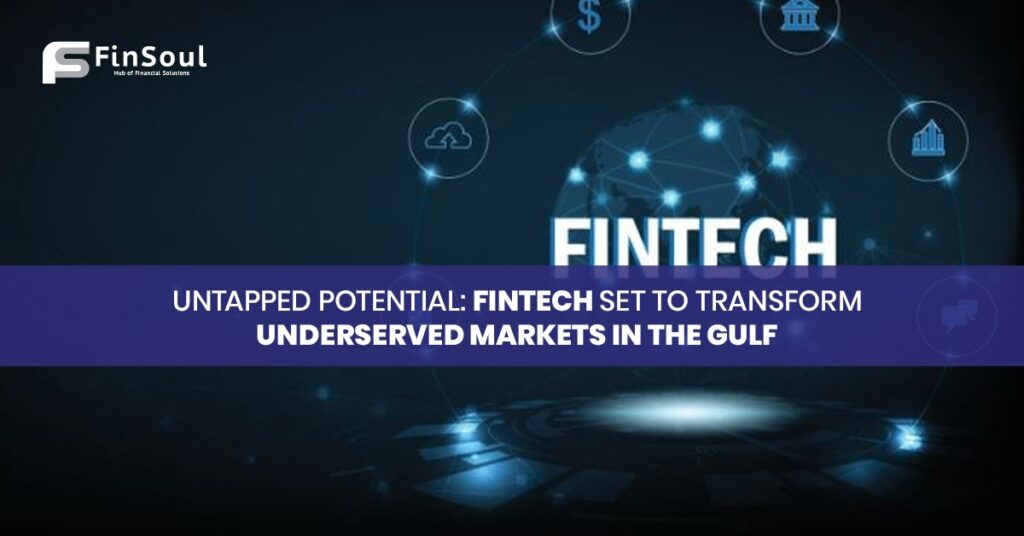Fintech companies have a great chance to help the underprivileged people in the Gulf region, which is recognized for its swift economic growth and technological innovations. The Gulf Cooperation Council (GCC) countries have a lot of expatriate workers, a growing middle class, and high mobile adoption rates, which puts them in a good position to benefit from fintech advances that can improve financial inclusion and economic empowerment.
Market Insights: Dive into numbers
Encouraging financial inclusion in developing nations is a difficult task. Nonetheless, fintech companies will find that the sector has long-term potential. In the United Arab Emirates, just 3% of adults lack access to banking, but a staggering 31% are still underserved. That’s 2.8 million people in the United Arab Emirates alone.
The group of people who are at least 15 years old is referred to as the “banked population”. Additionally, have an account with a formal financial institution like a bank, and own one or more of the following products. A credit card, a demand deposit account like a savings account, or a transactional account. In Saudi Arabia, 16 percent of people were still unbanked in 2023, while 53 percent of the population is underserved.
This corresponds to about 4.3 million unbanked people and over 14 million underserved people. Traditional banks have traditionally found it more appealing to serve underserved and unbanked groups, as they tend to cater to salaried, middle-class, and high-net-worth individuals when creating new goods and services.However, a large portion of these unbanked customers have strong online presences. For instance, people might use digital platforms for media consumption, online purchasing, and social messaging. Compared to general literacy and financial literacy, digital literacy is expanding at a very quick speed.
Bridging the Gaps through Fintech Startups
Traditional salaried lives are under challenges because to the growth of the gig economy. This necessitates using digital wallets and other novel financial methods. Financial inclusion is supported when digital platforms and financial services are offered in a less regulated, more inclusive way.
Fintech companies are stepping up to fill holes in the market and spot opportunities, but they are still concentrating on certain consumer sectors like peer-to-peer payments, international remittances, and By Now Pay Later. Conventional banks are also working to close the gaps left by the underbanked and unbanked, including women and homemakers, by offering products like supplemental cards.
Unlocking Opportunities for Gulf Underserved Market
Closed-loop prepaid cards and “Workers Payment Systems” may also be made available to blue collar workers, who make up a sizable portion of the populations in the United Arab Emirates and Saudi Arabia. However, there are no financial goods on the market, such as reward-based platforms, loyalty programs, or cashless commerce.
Poorer consumers’ lack of access to credit has fueled the expansion of BNPL programs while also putting these clients and larger economies at danger of loan default. All things considered, there aren’t many personalized retail payment methods that cater to unbanked individuals and meet their financial requirements. Reaching out to consumers who don’t trust the formal financial system is no longer difficult.
Because many of them desire solutions that are relevant to their requirements. such digitalized payment choices that are easy to use. Although financial literacy can still be improved, both traditional financial institutions and fintechs. Have unrealized potential by not offering financial goods to these individuals. Moreover, As countries gain from universal inclusion in digital payment systems. Creating an inclusive and digitally powered financial environment. Moreover, delivers more financial freedom to many and translates into wider advantages for everybody.
Finsoul’s Viewpoint
Finsoul understands the market and have deep insights about the market. We think that the fintech industry is essential to the expansion and progress. And excel in the fintech startups will play a crucial role in economic development. Finsoul provide consultancy services to assist SMEs and SMBs. A platform where imaginations are turned into realities. For further details visit our LinkedIn account.
Conclusion
Fintech businesses can flourish and provide underprivileged people with services in the Gulf region. Fintechs have the potential to significantly contribute to financial inclusion and regional economic growth. Moreover, by utilizing technology to offer easily accessible, reasonably priced, and effective financial services. Certainly, Fintech has the potential to change the financial landscape and empower millions of people. If authorities encourage it and concentrate on meeting the particular demands of the Gulf’s diverse population.

